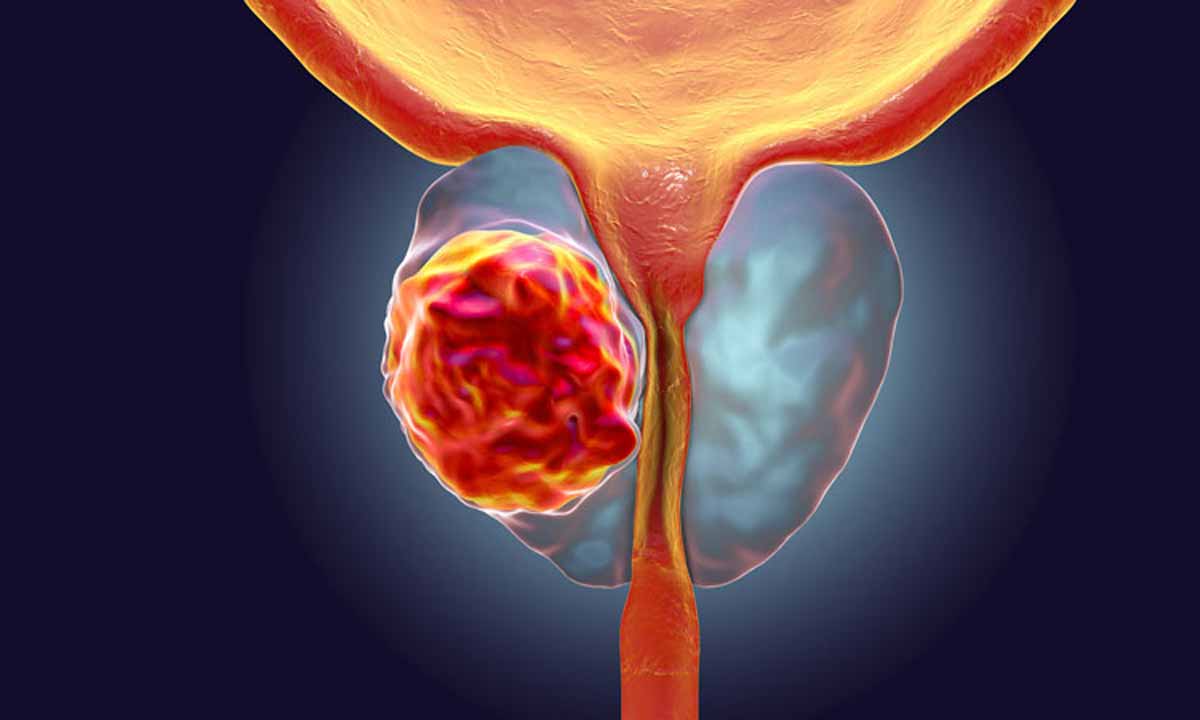Male Topics
Prostate Cancer
By D.A. (staff writer) , published on August 27, 2020

Medicine Telehealth Health
Prostate Cancer is a major cause of concern these days, especially among developed and developing countries. In the US, prostate cancer remains the second leading cause of death. As the name suggests, this disease is cancer which shows haphazard proliferation of prostate glands in middle-age men. Nonaggressive prostate cancer may grow slowly and show no symptoms at all whereas aggressive type can progress further, showing a variety of symptoms and can even put one's life at risk.
Prostate cancer
The prostate is a walnut-shaped gland found in males which functions to provide nourishment and acts as a transport medium to sperm by producing fluid-like secretion called semen. The prostate gland is present just below the bladder surrounding the urethra. Prostate cancer occurs when prostate cells show an uncontrollable proliferation of abnormal cells. This results in the enlargement of the prostate gland which compresses the urethra leading to urinary symptoms.
Almost all prostate cancers are adenocarcinomas that are cancer cells arising from the glandular region. Other prostate cancer includes small cell carcinomas, sarcomas, transitional cell carcinomas, and neuroendocrine tumors.
Some prostate cancers are non-aggressive showing no symptoms initially while others are rapidly growing or violent cancers. These uncontrollable cancers show a multitude of symptoms and can spread either through blood (hematogenous route) or through lymph (lymphomatous route).
Causes of prostate cancer
There is no identified cause linked with prostate cancer. It can be inherited or can be due to exposure to certain chemicals. Whatever be the cause, it all boils down to mutation. Mutations are any alteration in gene sequence of DNA of the prostate gland, resulting in permanent changes in structure and function. Due to these mutations, prostate cells start dividing uncontrollably in an irregular fashion. They can even spread (metastasized) and invade nearby tissues and also various other parts of the body including bones causing their destruction. Testosterone, a male sex hormone has been found fueling these cancer cells.
Risk factors
There are many risk factors associated with prostate cancer including
-
Men who are older in age; Middle age or older
-
Race; Some particular races or ethnicity like African Black men are at higher risk of developing advanced-stage prostate cancer as compared to other men.
-
Obesity; Diet rich in saturated fats may serve as a risk factor of prostate cancer. Men with prostate cancer and obesity possess a hurdle in their treatment
-
Family history of prostate cancer; Immediate relatives suffering from Prostate Cancer or even having Breast Cancer (with BRCA1 OR BRCA2 mutation ) increases the risk.
Symptoms of prostate cancer
As mentioned previously, early-stage prostate cancer possesses no symptoms. As the disease progress, it shows a variety of symptoms. Symptoms may include many urinary symptoms as well as other symptoms related to pain.
The urethra carries urine from the bladder to the penis. Since the prostate gland surrounds the urethra, enlargement of the prostate gland compresses it leading to symptoms like weak urine flow, frequent urination, burning sensation in urine, or trouble in urination. The presence of blood in the urine (Hematuria) can also occur.
The prostate gland and seminal vesicles function to produce seminal fluid which provides nutrition and support to male sex cells, sperm. Testis a part of the male reproductive system produces these sperm and ejects them into the urethra where it mixes with seminal fluid and is ejaculated out of the body through the penis. Thus prostate cancer affects this process by producing symptoms like painful ejaculation, erectile dysfunction, or impotence, that is, unable to keep erection and blood in semen after ejaculation.
When Prostate cancer metastasizes, it can invade other tissues and bones, especially the lumbar spine resulting in pain in the lower back, hips, or upper thighs and pain in the bones. There will be numbness in the legs and bladder if metastasis occurs in the spinal cord. The patient will also feel discomfort in the lower pelvic area.
General symptoms like loss of appetite and weight loss may also occur in prostate cancer.
Urinary symptoms appear early as compared to other symptoms but these symptoms need to be carefully assessed as benign prostatic hyperplasia (BPH) and prostatitis will show similar symptoms. Although hematuria does not occur in BPH or prostatitis there could be other reasons for it such as an infection. Either way, all of these symptoms should be reported to a doctor and get assessed thoroughly.
Find articles related to: Medicine Telehealth Health
More articles about Male Topics
Back to the Health Tips Index




